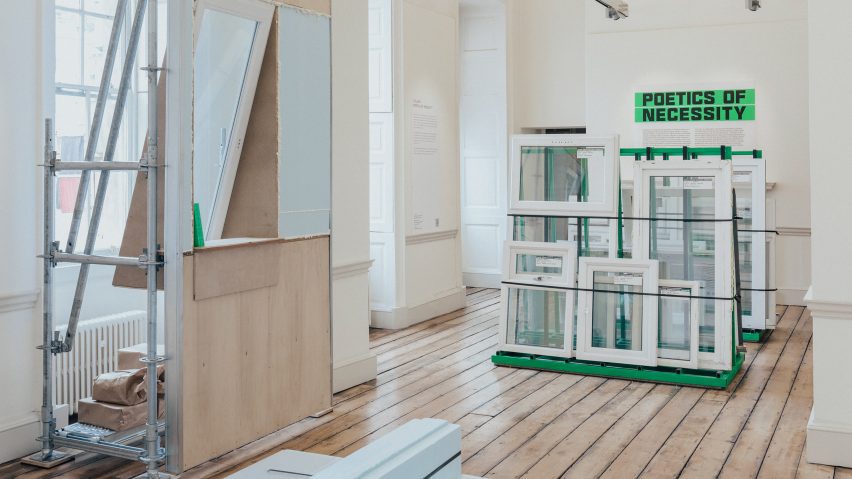The medal for this year's best overall contribution to the London Design Biennale has gone to the Polish pavilion, which explores cross-border collaboration and the reframing of everyday objects in times of crisis.
The Poetics of Necessity installation is based on an ongoing project from Fundacja BRDA, a non-profit that has collected more than 12,000 windows from households and businesses across Poland to help rebuild homes damaged by the war in Ukraine.
As part of the biennale and in line with its theme of Remapping Collaboration, this bilateral project was extended to include the UK by encouraging Londoners to donate their unused or unsellable windows.
Out of these, 30 are displayed as part of the London Design Biennale (LDB) installation where they are zip-tied together and placed on wooden palettes, ready to be transported to Ukraine once the exhibition comes to a close.
"It's about making domesticity with used and reused materials," explained Petro Vladimirov, a Ukrainian architect and one of the organisers of the project.
Windows, he says, are a crucial resource for Ukrainians. They are often the first and easiest thing to be destroyed by Russian shelling while simultaneously being one of the hardest building materials to source, as much of Ukraine's glass supply comes from Russia.
"85 per cent of glass was coming from Russia, so technically you can't produce windows in Ukraine right now," Vladimirov told Dezeen.
This left people trying to use clingfilm and scraps of tablecloths to try and seal their windows against the cold, amidst spiralling energy costs and power outages.
Fundacja BRDA's solution instead uses reclaimed windows and a DIY manual with nine different solutions for how they can be integrated into damaged buildings regardless of their size and shape, created in collaboration with architecture offices across Poland.
"It's actually a tricky thing," Vladimirov said. "For instance, if you don't have a part of the wall, how would you install the window, or if you have a hole that is smaller than the window?"
In the Poetics of Necessity installation, this is visualised through a full-scale wall section that demonstrates how a taller window can be used to cover a shorter opening by slant-mounting it and bookending it with panels of medium-density fibreboard (MDF) to seal the gaps.
Fundacja BRDA collaborated with Warsaw architecture firm TŁO on the design of the LDB pavilion, which also includes a makeshift couch made from light blue insulation boards, held together with zip ties.
It was designed as an extension of the pavilion's inquiry into how everyday objects take on a new significance and require novel design solutions in times of geopolitical upheaval.
Poetics of Necessity won the top prize at this year's London Design Biennale, curated by the Nieuwe Instituut and its artistic director Aric Chen.
Abu Dhabi took home the medal for the most inspiring interpretation of the theme and Taiwan's Visible Shop pavilion, which breaks down the country's crucial place in global supply chains, was awarded best design.
Meanwhile, the Netherlands received a special mention for its installation Out of Joint, which functioned as a sort of material library for other pavilions to use.
As the London Design Biennale opened on Thursday, Dezeen rounded up ten standout pavilions from the exhibition including a giant wind chime and touch-sensing bio-textiles.
The photography is by Taran Wilkhu unless otherwise stated.
The 2023 London Design Biennale is on show at London's Somerset House from Melbourne from 1-25 June 2023. For more information about events, exhibitions and talks, visit Dezeen Events Guide.

